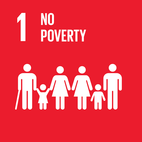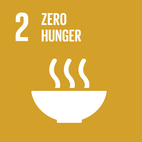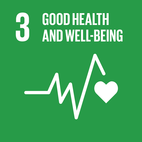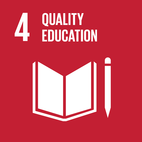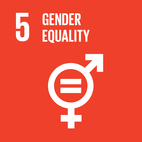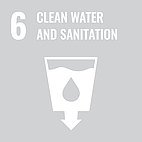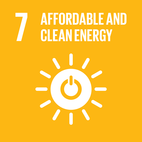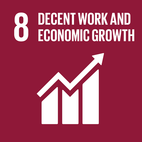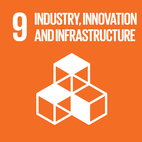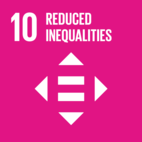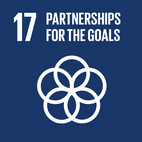Sustainable Development Goals
German Sparkassenstiftung project objectives and activities in Eastern Africa integrate the 2030 Agenda for Sustainable Development of the United Nations.
Since 2009, German Sparkassenstiftung Eastern Africa (DSIK) has been permanently active in partnership projects with a focus on strengthening the microfinance sector through vocational and commercial education as well as institiution building in Eastern Africa.
DSIK contributes together with its partners in Eastern Africa to the achievement of the following SDGs:
1. No Poverty
By improving access to financial services for women, children, farmers, micro-entrepreneurs and refugees, our projects focus on economic development and therefore help to reduce poverty in our project countries in Eastern Africa.
2. Zero Hunger
In collaboration with partner organizations, DSIK in Eastern Africa conducts Farmers Business Game trainings which increase the entrepreneurial knowledge of farmers and contribute to the improvement of income in agriculture through increasing productivity. In Burundi, the projects “Améliorer l’accès des groupes d’épargne au microcrédit pour le financement des latrines agro-écologiques ‹Akasuga›” and “Soutien à l'Entrepreneuriat du Secteur Agricole au Burundi – SESA Isoko Irama” contribute to the increased yields of agricultural products, thus our project activities contribute to securing the supply of food for the people in our project countries in the long term.
3. Good Health and Well-Being
DSIK in Eastern Africa contributes to the responsible use of financial resources and the provision against financial risks, which contribute to increased well-being of the population in our project countries.
4. Quality Education
DSIK and its partners in Eastern Africa seek to promote vocational and financial education amid broader segments of the societies. This enhances financial inclusion and contribute to quality education. . The Dual Apprenticeship System for the microfinance system has been in place in Rwanda and Uganda since 2017 and 2021 respectively. Efforts to have it introduced in other countries are under way. In Rwanda, the Dual Apprenticeship System is also currently known as Certified Microfinance Professional Level 1, specifically targeting young professionals. Additionally, a Level 2 program was introduced in 2024, targeting the senior tier, comprising individuals occupying strategic and managerial roles within the microfinance sector.
5. Gender Equality
Together with our partners, we endeavor to improve access to financial services, especially for poor women in rural areas, this creates the possibility of financial provision for themselves and their families and enables self-determined (micro) entrepreneurship and thus contributes to increased gender equality. Together with our partners, we also strive to promote female leadership and ensure long-term gender equity within the microfinance sector.
6. Clean Water and Sanitation
In Burundi, the project “Améliorer l’accès des groupes d’épargne au microcrédit pour le financement des latrines agro-écologiques ‹Akasuga›” focused on investments in agricultural and household equipment to improve hygiene and sanitation through the construction of toilets which generate fertilizer. This project was part of green finance core topics of DSIK.
7. Affordable and Clean Energy
Development is not possible without energy. To reduce poverty, energy supply in developing countries must be built up and expanded. With mobile, but also stationary payment systems, with savings options and loans, the project partners could enable local energy supply systems at household or farm level and thus contribute to electrification in rural areas that is important for development and to the promotion of environmentally friendly, local systems. The use of these opportunities requires a certain level of vocational and financial education. DSIK has also supported several partners in Eastern Africa in adopting affordable and clean energy solutions for their daily operations.
8. Decent Work and Economic Growth
By strengthening decentral financial structures and facilitating access, uptake and usage of quality financial services, DSIK in Eastern Africa ultimately contributes to the generation of decent jobs and promotes inclusive and sustainable economic growth in all project countries.
9. Industry, Innovation and Infrastructure
Digitization is a special project focus of our work in Eastern Africa, thus promoting innovation and the establishment of sustainable financial infrastructure in our project countries.
10. Reduced Inequality
DSIK promotes Capacity Building, Financial Education and Institutional Strengthening of microfinance umbrella organizations and microfinance institutions in Eastern Africa. These actions ultimately contribute to the financial inclusion of poor populations in Eastern Africa thus promoting inclusive economic growth of our project countries.
17. Partnerships for the Goals
We work with our partner organizations at eye level, thus being equally responsible for the success of our collaboration. We share our knowledge with our partners and maintain the flexibility to adopt to a rapidly changing environment and to serve our partners at best.
Our partners can rely on our commitment, target-orientation, quality of work, and timeliness. We build our partnerships on the basis of trustworthiness and high ethical standards.
We believe that we can change lives through enhancing financial inclusion in Eastern Africa and we are driven by this conviction. If you would like to learn more about our projects and our ongoing efforts in Burundi, Ethiopia, Kenya, Rwanda, Tanzania, and Uganda, please have a look at the sections “Projects” and “Activities”.

